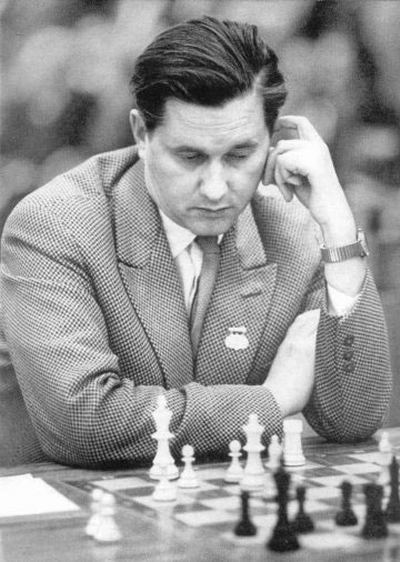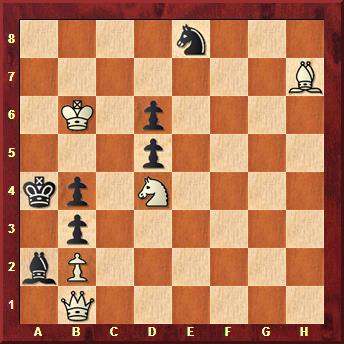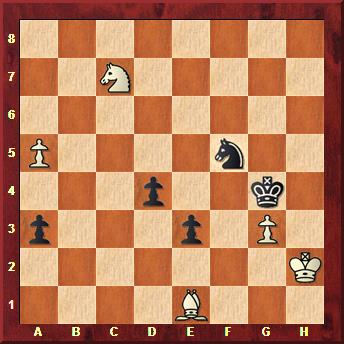Paul Keres, the composer
By Prof. Nagesh Havanur

Paul Keres (1916-1975) was a prince among men. He was among those few players never to have won the World Championship crown in spite of sheer talent and achievement. In his younger years he was known for adventurous play and astounding combinational skill. In later years he moved towards perfection and became a superb strategist with flawless technique. He still played combinations in the autumn of life, and they were of the purest gold, in the striking phrase of Harry Golombek.
As is known, Keres was also a composer of problems and studies. He began when he was very young. The following two-mover was probably the first to see the light of day.
Paul Keres, Päevaleht 1929

White to play and mate in two
When you see this problem you are baffled. Before looking for mate shouldn’t you rescue the queen? But then you get nowhere near the king. So what is the way?
All solutions to all problems are given in the Javascript replay board at the bottom of this page. But we entreat you to spend some minutes trying to find the clever solution before you peek. The above mate-in-two, you will agree, is not bad for a thirteen-year-old! Three years later he produced another gem.
Paul Keres, Esmaspäev 1932

White to play and mate in three.
Here Black is poised for stalemate. How does White stop him with elegant means? You only need an act of imagination for this one.
Keres was less prolific as an author of studies. Some of them did not meet the rigorous standards of composition and were subsequently cooked. Those that have stood the test of time are, however, worth a look.
Paul Keres, Magyar Sakkvilág 1936

White to play and win
White is a queen up and still the king looks doomed on account of the threat of 1...b2+ followed by promotion to queen. But no, he would survive and go on to triumph with a magic display followed by minimum show of force in the end. The third move is a stunner.
Keres loved those little pieces and they in turn did wonders for him. In the following position White appears helpless against the avalanche of Black pawns. His own lone pawn already looks doomed. But help is on the way.
Paul Keres, Deutsche Schachblätter 1939

White to play and draw
In his lifetime Keres is said to have composed about 200 problems and 30 studies. Way back in 1999 Aleksander Hilderbrand and Friedrich Chlubna published a bi-lingual booklet, Paul Keres der Komponist, with a short collection of his problems. A more comprehensive work would be welcome in the year of his centenary.
Solutions to the above problems and studies
Select games from the dropdown menu above the board.
Recent articles on Paul Keres





























